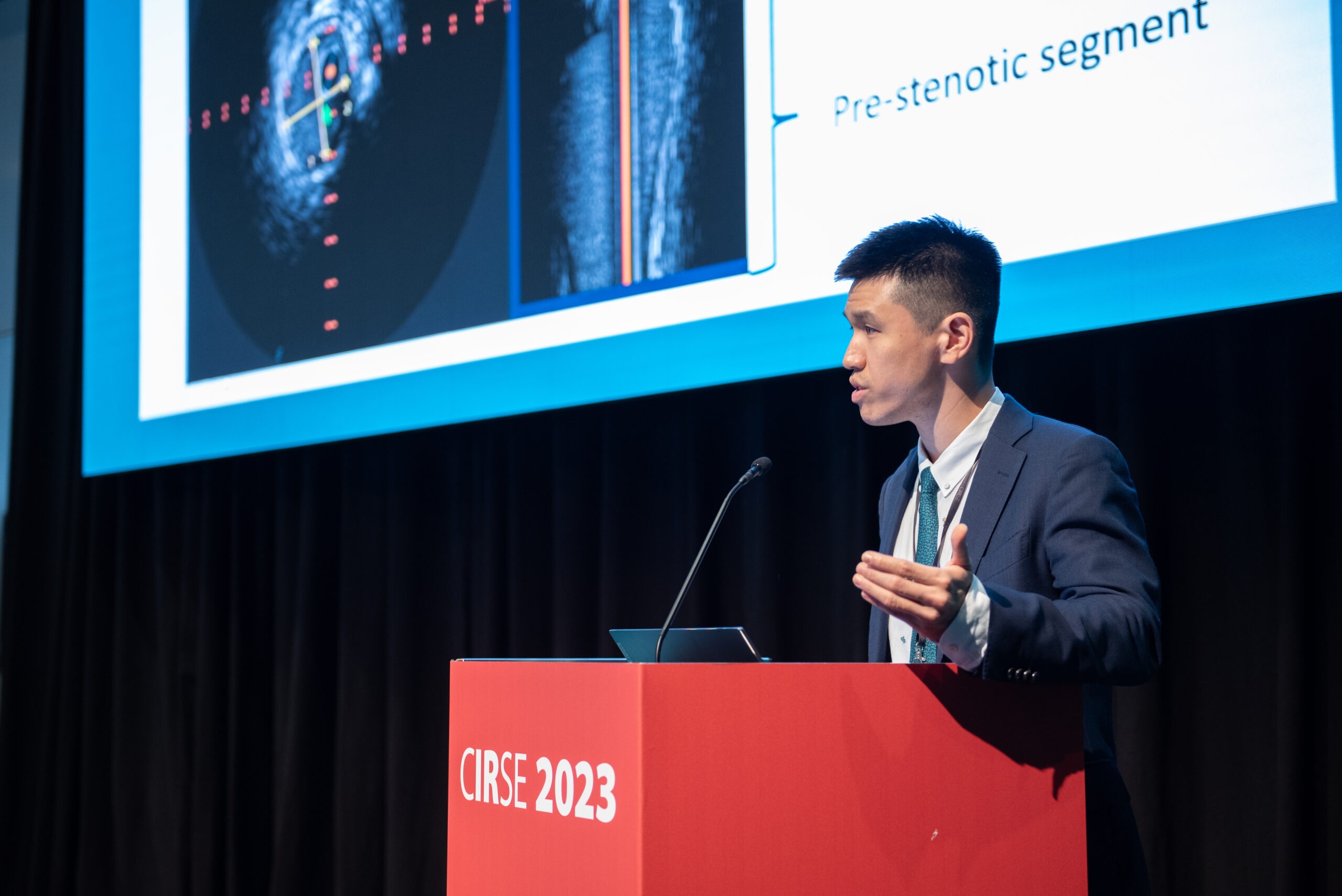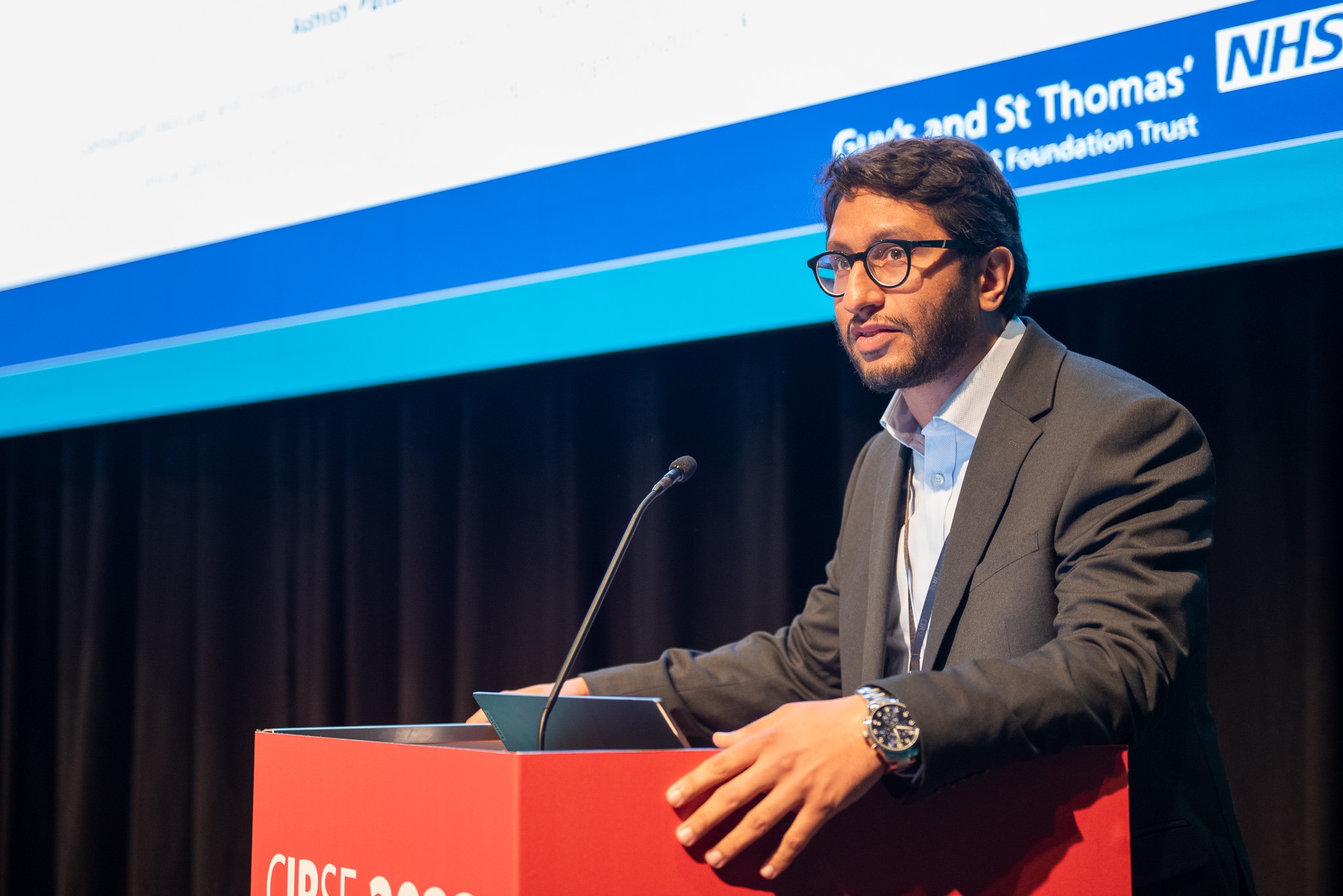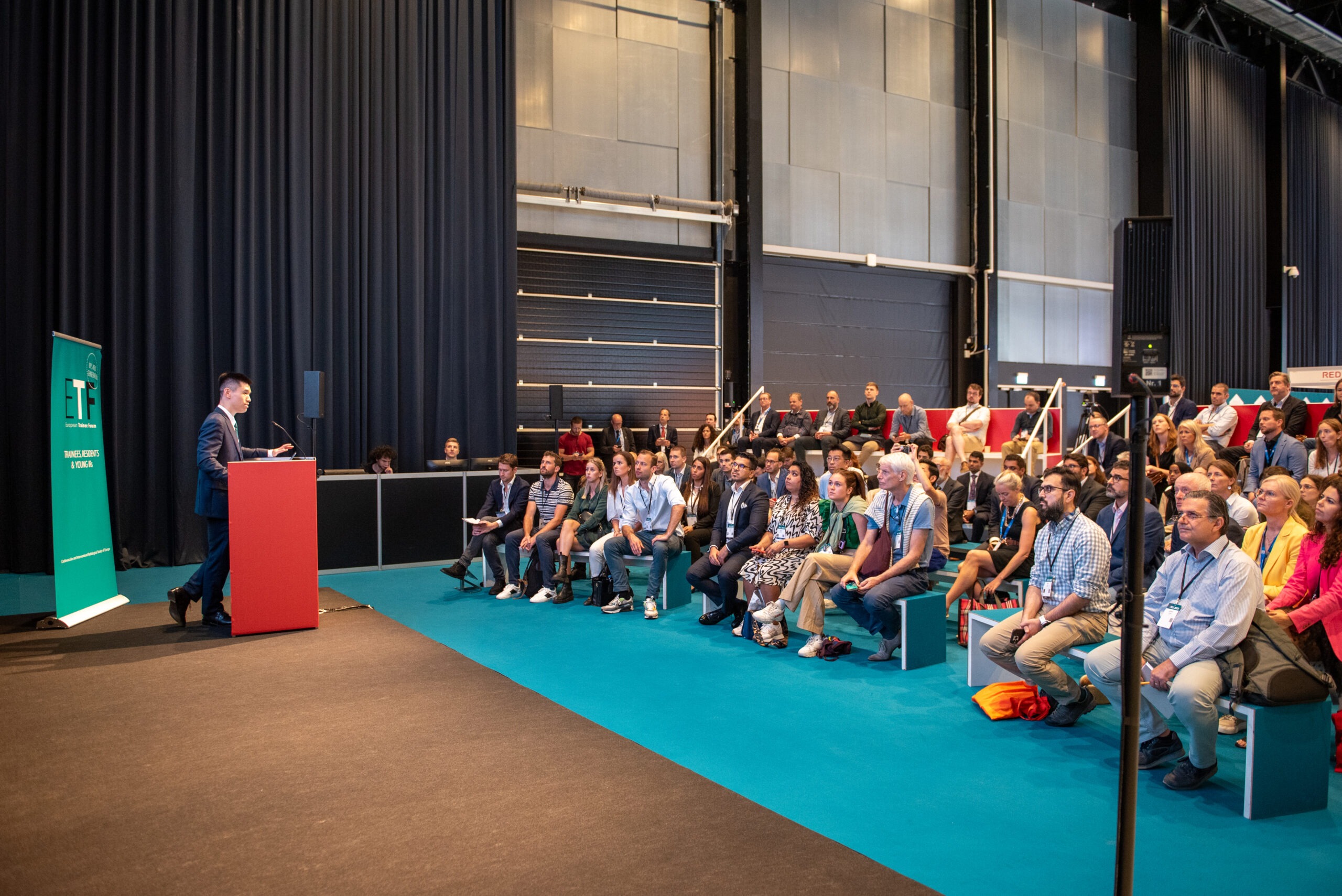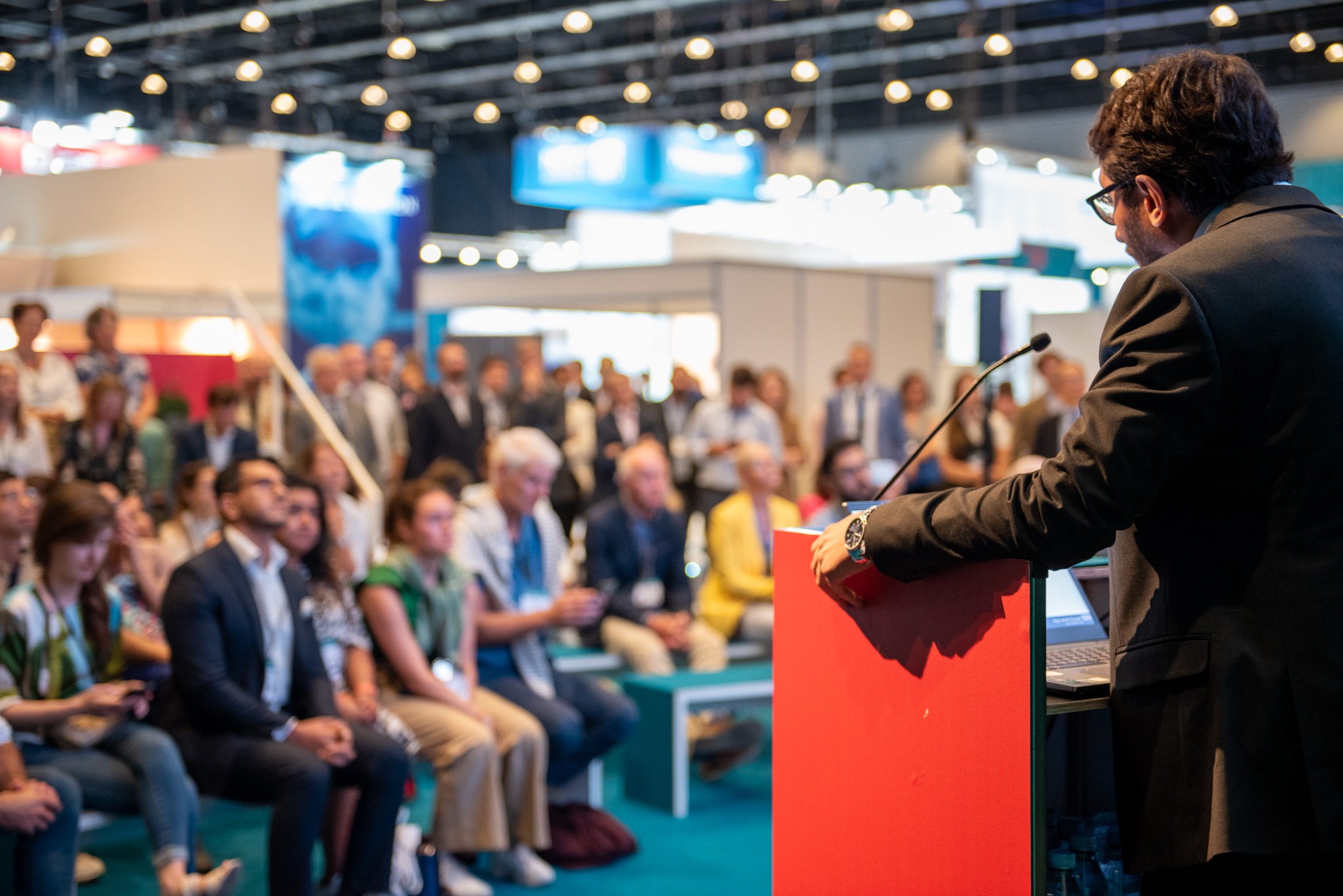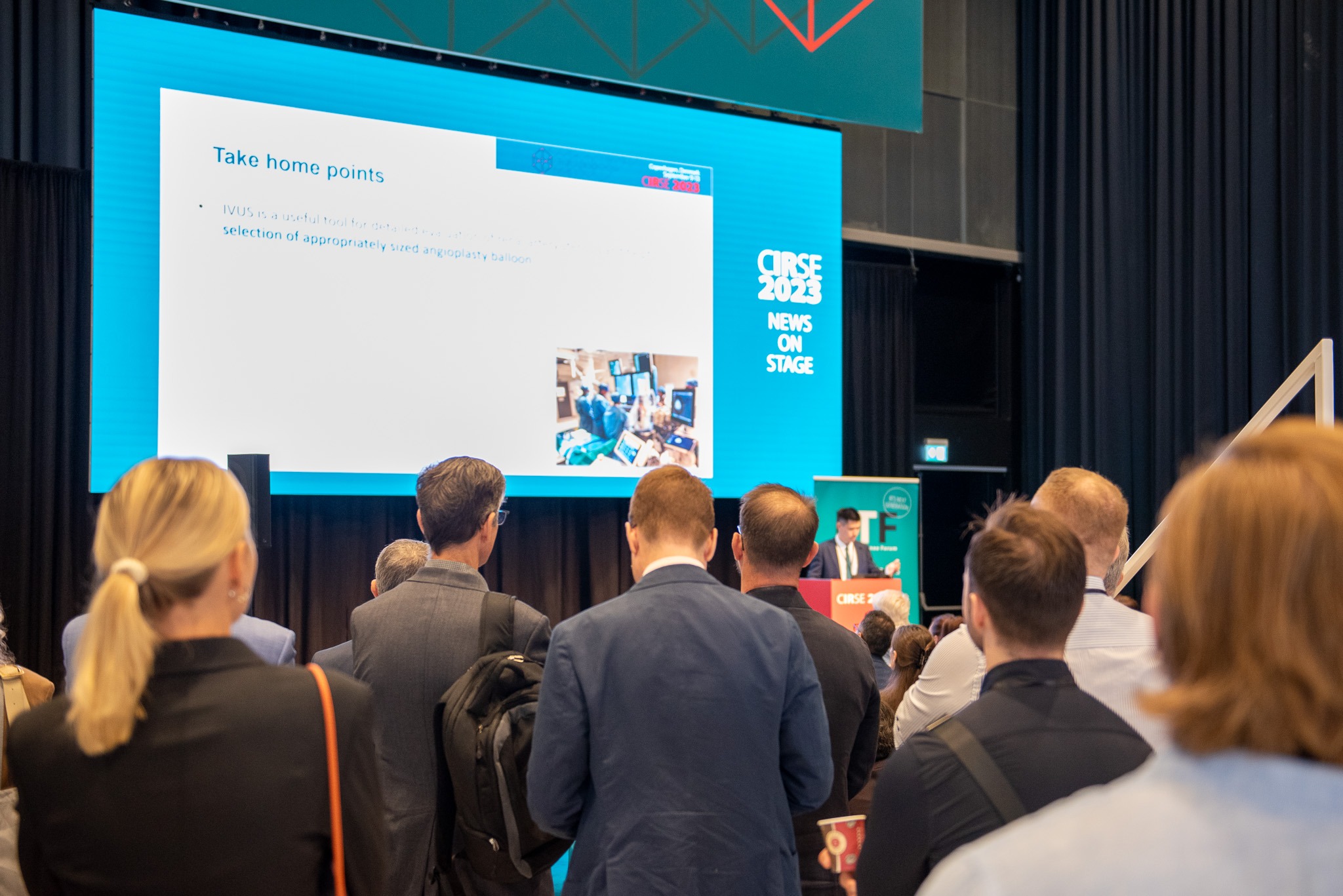Note: Applications for the CIRSE 2024 Next Generation IVUS Case Competition are now closed. If you have any questions regarding the competition, please get in touch at [email protected].
CIRSE will host another instalment of the intravascular ultrasound (IVUS) case competition at CIRSE 2024. The goal of this initiative is to support the next generation of leaders in medicine by giving them a platform to share their clinical knowledge, network with mentors and industry partners, and inspire future medical professionals with their successful case studies.
We connected with last year’s winner, Dr. Kevin Fung, as well as another fantastic competitor, Dr. Mohamed Hosny Sayed, to hear about their experience with the competition and words of encouragement for young and prospective IRs.

